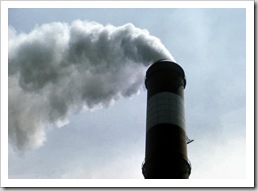This week I've been talking to people and reading a lot about the condition of the economy. But from the most gut wrenching levels... the effect financial mis-management has had on the people and the world at large.
 Did you know there are increasing numbers of people who are jobless and homeless too? Some people are living in their cars or in tents. I lived in a tent and a car for 3 years so I know what it's like, but mine was by choice, not necessity a very different thing.
Did you know there are increasing numbers of people who are jobless and homeless too? Some people are living in their cars or in tents. I lived in a tent and a car for 3 years so I know what it's like, but mine was by choice, not necessity a very different thing.
The foreclosure rates are soaring in the USA. 102,000 in August alone. Year-to-date, 1,450,000 US homeowners (19.6 of every 1,000 households) faced pre-foreclosure. That is mind boggling.
Credit-card debt is on the brink of imploding and will be the next storm to hit. Innovest StrategicValue Advisors, a consulting firm, forecasts that banks will charge off $18.6 billion worth of credit card receivables in the first quarter of 2009 and $96 billion in 2009 -- that would be 261% more than in 2007 and 131% higher than the level it expects by the end of 2008.
Makes one wonder why? Since 2004 the interest rates on credit cards have climbed from 4% to more then 24.99%. This is for those with good credit scores who maintain a balance and pay their bills on time. The credit lenders promoted card usage by upping available credit limits, issuing checks and offering 0% rates on some new cards. Some credit card companies even issued cards to those who had just filed bankruptcy. Would this be considered questionable credit lending practices? Some people abused the system, over spent and were irresponsible. But many, perhaps unwisely, used credit cards to supplement income; to buy food and pay bills, insurance premiums and medical expenses. Thinking they'd be able to payoff the balance at the current interest rate. But the rates kept getting higher and higher which can be devastating financially.
As well subprime and prime mortgages were written with questionable financing. I have a disabled friend that refinanced his home in 2007. Said he couldn't afford the principle and interest payments, so opted for interest only for 5 years. Another woman I know purchased a home 3 years ago and her payments ($4,600/mo.) are more then 75% of her income. Why would any responsible lender do this? Why didn't they deny the loans? Have we put our trust in a faulty system?
Even if the lending practices were responsible life circumstances can change. Another woman I met over coffee last week said she lost her primary income source and is doing everything she can to keep her home. She has it up for sale, but the slow markets keep her house poor. What little income she's able to generate goes to the house payment. She applied for food stamps but was ridiculed and investigated because she owned a home. She opted instead to visit the local food bank to survive. Do we sometimes judge others to harshly? Or come to sweeping conclusions which are erroneous?
These 3 good, honest people are on the brink of financial collapse. If anything else is added to their plates they may all end up homeless. And these are only a few of folks I know. Imagine what it must be like nationwide or perhaps worldwide?
And we've got the opposite end of the spectrum. WAMU's CEO Alan Fishman worked 3 weeks, now is headed out the door with $19 million in his pocket. There are too many other stories like that I won't write about. I'm certainly not against people getting bonuses, but when the CEO gets $19 million and the stock holders get zip... that's convoluted.
When there is so much disparity, one may ask, 'What's wrong with this picture'?
Global Financial Crisis?
U.S. turmoil churns up an ill wind worldwide (1 October 2008) Park Yung-Chul, a Korea University economist, who also has taught at Harvard and the Massachusetts Institute of Technology says of the USA, "On finance, you're becoming a second-class economy. How could you do so badly managing your economy and managing international affairs? And now you've created this global financial crisis for which everyone is going to suffer!"
Put  Climate Change Solutions on hold?
Climate Change Solutions on hold?
In Australia there is talk about a 60% or even 90% reduction in green- house emissions by 2050. News.com.au (30 Sept 2008) Rudd's expert wants tougher carbon goals. Top climate change adviser Ross Garnaut has warmed to the idea of a deep cut to greenhouse emissions - but he thinks it probably won't happen. The Business lobby group, Australian Chamber of Commerce and Industry (ACCI) said tackling climate change must be approached cautiously because of global financial instability.
Let's rethink this...
Global financial instability is a reality. Global warming is also a reality.
Green ecology...
Massive change is needed in the world financial markets for survival of the global economy. Just like massive change is needed in the current pollution of the environment for survival of life. While the financial world is being restructured it is an excellent opportunity to consider greener ways of doing business, living life, interacting with each other and our environment.
This is Green ecology - the interrelation of people, the environment and the economy. It considers the big picture.
Green finance...
Green finance specifically considers money and how it is managed. The creation and distribution of money with consideration given to how it impacts not only the economy but society as a whole, the earth, and all life. How we can wisely manage money to benefit all... not just a few.
With wise restructuring of money also comes the wise use of resources and the impact on society and the environment. Green finance as I see it is a holistic approach. It is no longer possible to live on our small planet without rethinking... implementing and living in harmony with consideration given for all life.
Green consciousness...
Green consciousness considers our interactions with one another. It addresses the issues of our peaceful co-existence and the creation of a worldwide balanced, equal, loving, supportive, helpful environment.
The way things have been done in the past no longer work. Rethinking, devising a plan and implementing changes on all fronts is necessary for our survival financially, economically, socially and environmentally. The alternative... we have economic chaos, social disorder and an inhabitable planet.
It is a critical time. An exciting time. It's not too late to turn this mess around if we all jump on board and come from a place of compassion and love for all life. It's time for action...

No comments:
Post a Comment